We share with you the first experiences of our expatriate in Ethiopia, Rafael Aguayo, after his first trip to the country.
The FPSC is currently developing two projects in the region with the support of the AECID and Obra Social “la Caixa”, and soon another one will start thanks to the financing of the City Council of Majadahonda.
These actions aim, on the one hand, to improve the quality of health in the sub-district of Akaki Kaliti (Addis Ababa); and on the other hand, to promote rural development by improving agricultural productivity in Nekemte, which guarantees food security among the population.
“My Last First Trip”
By Rafael Aguayo Cano
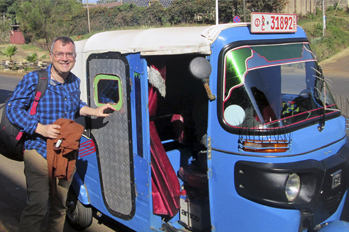 So many comings and goings here and there, and still I do not cease to amaze every day that I am alive. The main reason for my astonishment is fuelled by the delicious plurality that incessantly satisfies me and enriches this exquisite planet. Ever since I took my first flight until I released the last one, I have understood and assumed that our world is small but that in spite of everything, in it cohabit people so different and also so similar that they become distant and approach keeping alive the diverse theories on the Balance of things.
So many comings and goings here and there, and still I do not cease to amaze every day that I am alive. The main reason for my astonishment is fuelled by the delicious plurality that incessantly satisfies me and enriches this exquisite planet. Ever since I took my first flight until I released the last one, I have understood and assumed that our world is small but that in spite of everything, in it cohabit people so different and also so similar that they become distant and approach keeping alive the diverse theories on the Balance of things.
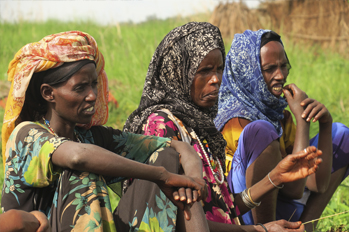 Ethiopia is another destination that surprises me every day. The different realities that coexist make of the country a mosaic of vivid colours, defined by its multiculturalism and by its immense resources that it offers to be admired. And yet, at the same time, Ethiopia is so in need of support and help… Perhaps because the model does not work, perhaps because of its history, perhaps because of the breadth of extension, perhaps because of an uneven distribution of wealth, of course, the whole of the whole… or perhaps because it only needs more time… the fact is that… not all have the same time to live.
Ethiopia is another destination that surprises me every day. The different realities that coexist make of the country a mosaic of vivid colours, defined by its multiculturalism and by its immense resources that it offers to be admired. And yet, at the same time, Ethiopia is so in need of support and help… Perhaps because the model does not work, perhaps because of its history, perhaps because of the breadth of extension, perhaps because of an uneven distribution of wealth, of course, the whole of the whole… or perhaps because it only needs more time… the fact is that… not all have the same time to live.
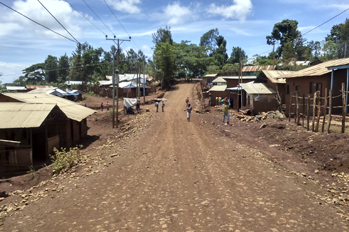 I arrived in October, in the middle, once again, of an “anomalous” situation provoked by an institutional crisis with student revolts and with hard reprisals by the government. Again there were victims of instability for one of these anomalous circumstances so frequent in the African continent that I love so much. The country was immersed in a state of emergency that justified strong restrictions on the part of the established powers. Such restrictions would make my role as FPSC representative in Ethiopia much more difficult. For example, internet availability was very limited and even heavily censored. In the era of telecommunications, the simple impossibility of accessing social networks, of not being able to send files or photographs, etc., can become a difficult obstacle to overcome for the usual daily chore.
I arrived in October, in the middle, once again, of an “anomalous” situation provoked by an institutional crisis with student revolts and with hard reprisals by the government. Again there were victims of instability for one of these anomalous circumstances so frequent in the African continent that I love so much. The country was immersed in a state of emergency that justified strong restrictions on the part of the established powers. Such restrictions would make my role as FPSC representative in Ethiopia much more difficult. For example, internet availability was very limited and even heavily censored. In the era of telecommunications, the simple impossibility of accessing social networks, of not being able to send files or photographs, etc., can become a difficult obstacle to overcome for the usual daily chore.
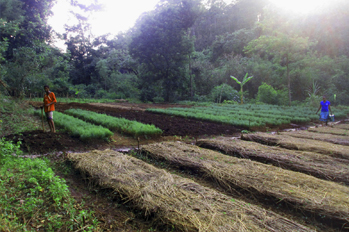 In order to join more difficulties to my work, one of the projects for which FPSC is responsible is currently being implemented in the region of Oromía, where precisely the main sources of disturbances and clashes have resulted in the current state of political unrest. Therefore strict controls or “check point” precluded during my first weeks in Ethiopia my required field visits.
In order to join more difficulties to my work, one of the projects for which FPSC is responsible is currently being implemented in the region of Oromía, where precisely the main sources of disturbances and clashes have resulted in the current state of political unrest. Therefore strict controls or “check point” precluded during my first weeks in Ethiopia my required field visits.
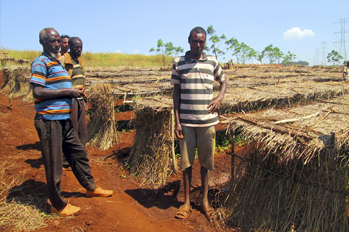 The project in Nekemte, as it is called the town where the beneficiaries’ settlements are located, has as its central objective improving food security through rural development through a series of actions that allow better use of the resources they have. Among others, it contributes to the associations through the creation of cooperatives; Cultivation techniques are improved; Agro forestry nurseries are created to diversify production and reforest degraded areas to avoid erosion; Termites are combated to combat deforestation and diseases transmitted by the tsetse fly to livestock, etc.
The project in Nekemte, as it is called the town where the beneficiaries’ settlements are located, has as its central objective improving food security through rural development through a series of actions that allow better use of the resources they have. Among others, it contributes to the associations through the creation of cooperatives; Cultivation techniques are improved; Agro forestry nurseries are created to diversify production and reforest degraded areas to avoid erosion; Termites are combated to combat deforestation and diseases transmitted by the tsetse fly to livestock, etc.
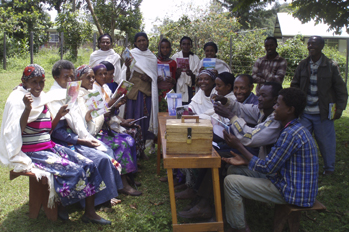 While Addis Ababa establishes itself as a proud metropolis by being privileged among the African capitals of greater institutional weight within the international political landscape, Nekemte is currently one of those cities that develop under the shadow of the big city, maintaining, fortunately or unfortunately, some rural charm. Growth in Ethiopia is clearly not equitable. Nevertheless, it is impressive in Nekemte the constant hustle and bustle of its streets, always crowded with people, mostly young, who swarm from here to there, seemingly without a fixed destination.
While Addis Ababa establishes itself as a proud metropolis by being privileged among the African capitals of greater institutional weight within the international political landscape, Nekemte is currently one of those cities that develop under the shadow of the big city, maintaining, fortunately or unfortunately, some rural charm. Growth in Ethiopia is clearly not equitable. Nevertheless, it is impressive in Nekemte the constant hustle and bustle of its streets, always crowded with people, mostly young, who swarm from here to there, seemingly without a fixed destination.
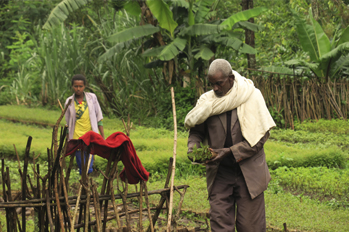 In the field, in our area of activity, in our settlements… -Mada Jalala or Sasiga-, the picture is somewhat different. The people are flat and hardworking, and under my eyes they only need that little push that gives them a new impulse, enough to reach a new step that will improve their aspirations.
In the field, in our area of activity, in our settlements… -Mada Jalala or Sasiga-, the picture is somewhat different. The people are flat and hardworking, and under my eyes they only need that little push that gives them a new impulse, enough to reach a new step that will improve their aspirations.
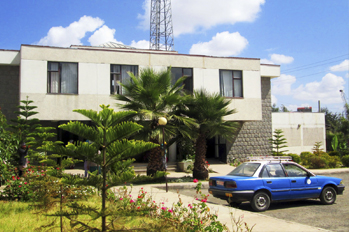 The second of our projects currently underway is in the sub city of Akaki Kaliti . When I visited the St. Gabriel Health Centre I was really proud to belong to this great family that is the Foundation. Although I do not come professionally from the medical field, I have been surrounded by doctors and nurses in my immediate circle and that is why I am not at all surprised by the characteristic smell of disinfectant and medicine proper to hospitals, health centres and so on. My wife, without going further, proudly walks her dressing gown, and for all this I feel somehow identified with the profession as well.
The second of our projects currently underway is in the sub city of Akaki Kaliti . When I visited the St. Gabriel Health Centre I was really proud to belong to this great family that is the Foundation. Although I do not come professionally from the medical field, I have been surrounded by doctors and nurses in my immediate circle and that is why I am not at all surprised by the characteristic smell of disinfectant and medicine proper to hospitals, health centres and so on. My wife, without going further, proudly walks her dressing gown, and for all this I feel somehow identified with the profession as well.
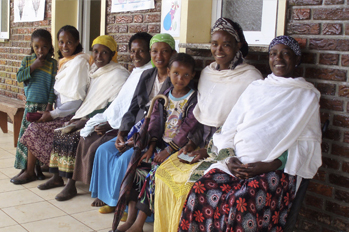 The centre from its beginnings, already in 2009, has enjoyed uninterrupted support from our Foundation and thanks to it has become a benchmark in Addis. It covers one of the most marginalized areas of the city and is focused on reducing neonatal and under-five infant mortality ratios and mortality among parturient mothers. In a country so deficient in social spending (only 5.1% of its GDP earmarked for health), the search for external support by health institutions becomes a pressing need for priority. Mortality rates are scandalously high for any growing country, and as long as the government does not reverse the situation, our mission as an NGO will be to mitigate its devastating effects (420 women killed per 100,000 live births). In addition, Ethiopia occupies a sad sixth position among the countries with the greatest number affected by the terrible scourge of AIDS.
The centre from its beginnings, already in 2009, has enjoyed uninterrupted support from our Foundation and thanks to it has become a benchmark in Addis. It covers one of the most marginalized areas of the city and is focused on reducing neonatal and under-five infant mortality ratios and mortality among parturient mothers. In a country so deficient in social spending (only 5.1% of its GDP earmarked for health), the search for external support by health institutions becomes a pressing need for priority. Mortality rates are scandalously high for any growing country, and as long as the government does not reverse the situation, our mission as an NGO will be to mitigate its devastating effects (420 women killed per 100,000 live births). In addition, Ethiopia occupies a sad sixth position among the countries with the greatest number affected by the terrible scourge of AIDS.
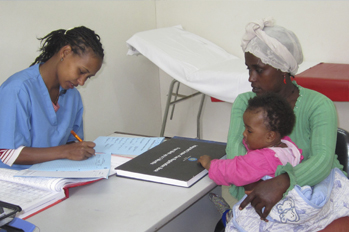 Our small miracle of St. Gabriel has a central building where the offices are located on the first floor and on the top floor the rooms of cures, rooms for patients and operating theatres. On another side, in another annex, we find the ambulatory divided into three zones: one for neonates and children under 5 years; another area for women in a state of good hope; and finally a third area where a clinical analysis laboratory plays a primary role within the diagnosis.
Our small miracle of St. Gabriel has a central building where the offices are located on the first floor and on the top floor the rooms of cures, rooms for patients and operating theatres. On another side, in another annex, we find the ambulatory divided into three zones: one for neonates and children under 5 years; another area for women in a state of good hope; and finally a third area where a clinical analysis laboratory plays a primary role within the diagnosis.
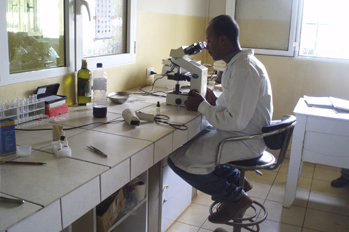 Pharmacies, cafeteria and patient reception building complete the broad complex designed to improve the care of one of the neediest areas in one of the countries most in need.
Pharmacies, cafeteria and patient reception building complete the broad complex designed to improve the care of one of the neediest areas in one of the countries most in need.
Sometimes I have a sick obsession for my mind to open up completely and then to be able to understand all these seemingly different realities that coexist on our little planet. In this way, I think, I will be able to approach and understand people so different but so equal that in many places they accompany me or that one day they did or will do it. Actually, I am convinced that I only seek to marvel again every day.

